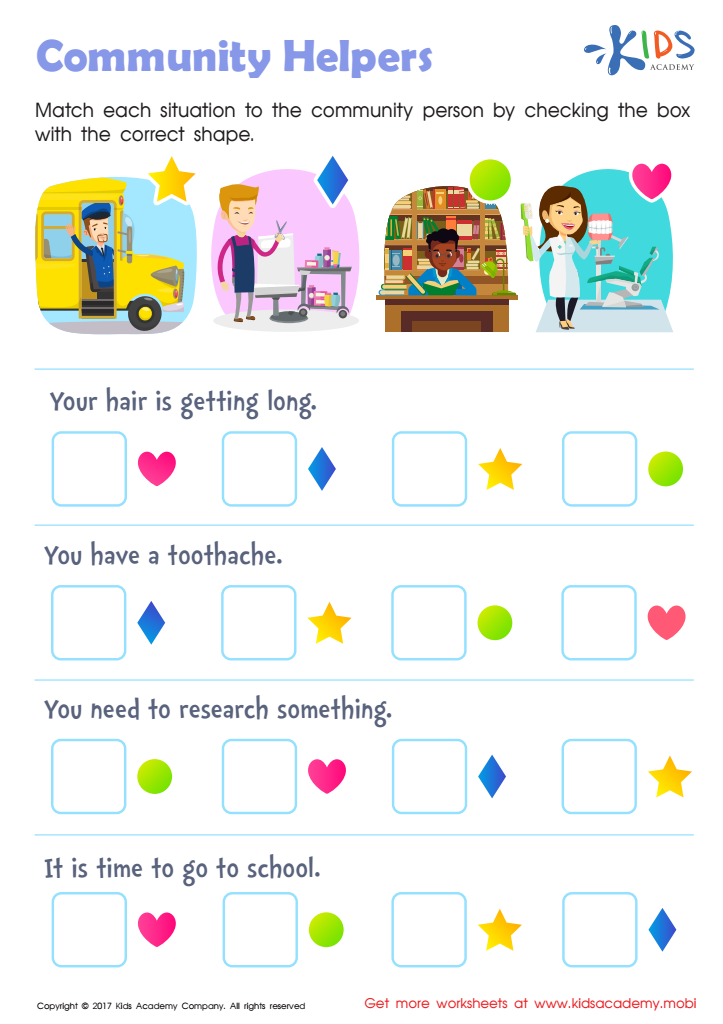Vocabulary enhancement Normal Community Worksheets for Ages 4-7
11 filtered results
-
From - To
Enhance your child's vocabulary with our engaging Normal Community Worksheets, specially designed for ages 4-7. These printable resources offer a fun way for young learners to explore important community concepts while developing essential language skills. Each worksheet features interactive activities, such as word matching, fill-in-the-blanks, and visual aids, which help children connect words to real-life scenarios. By utilizing these worksheets, kids not only expand their vocabulary but also gain a deeper understanding of their community. Perfect for home or classroom use, our worksheets are an excellent tool to foster language development and enhance learning experiences for early grade students.
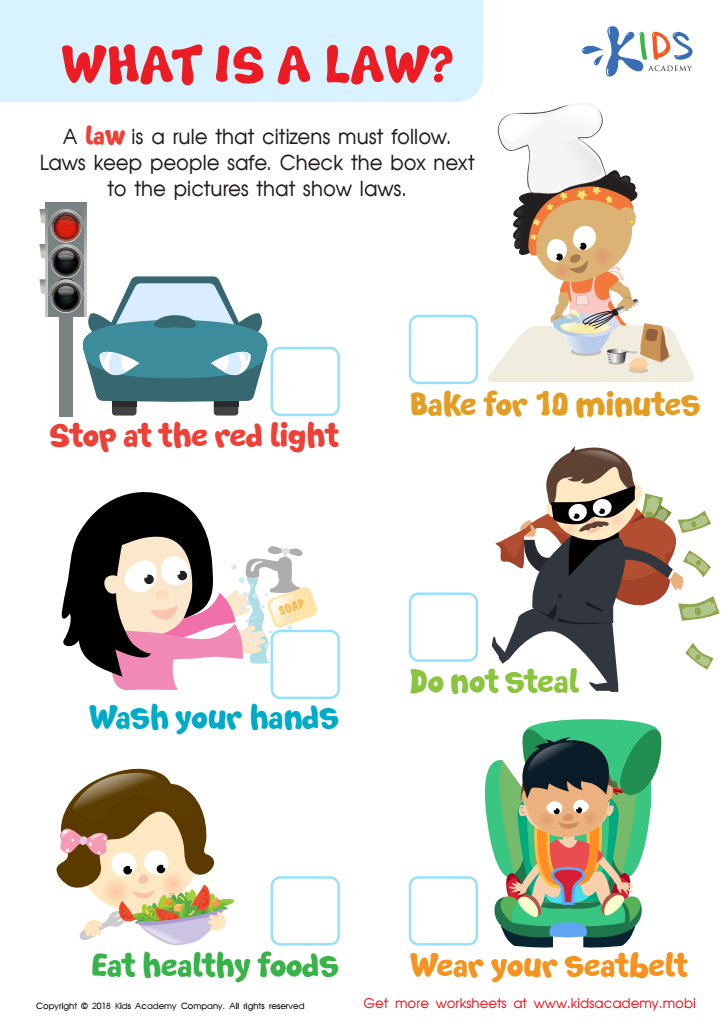

What is a Law? Worksheet
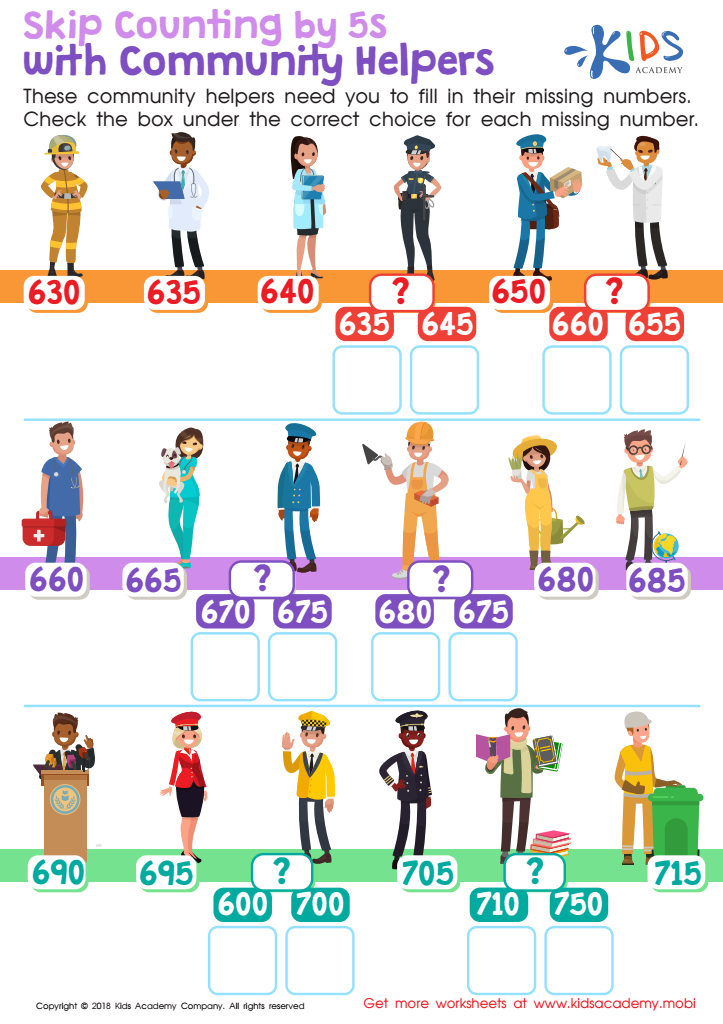

Skip Counting by 5s With Community Helpers Worksheet
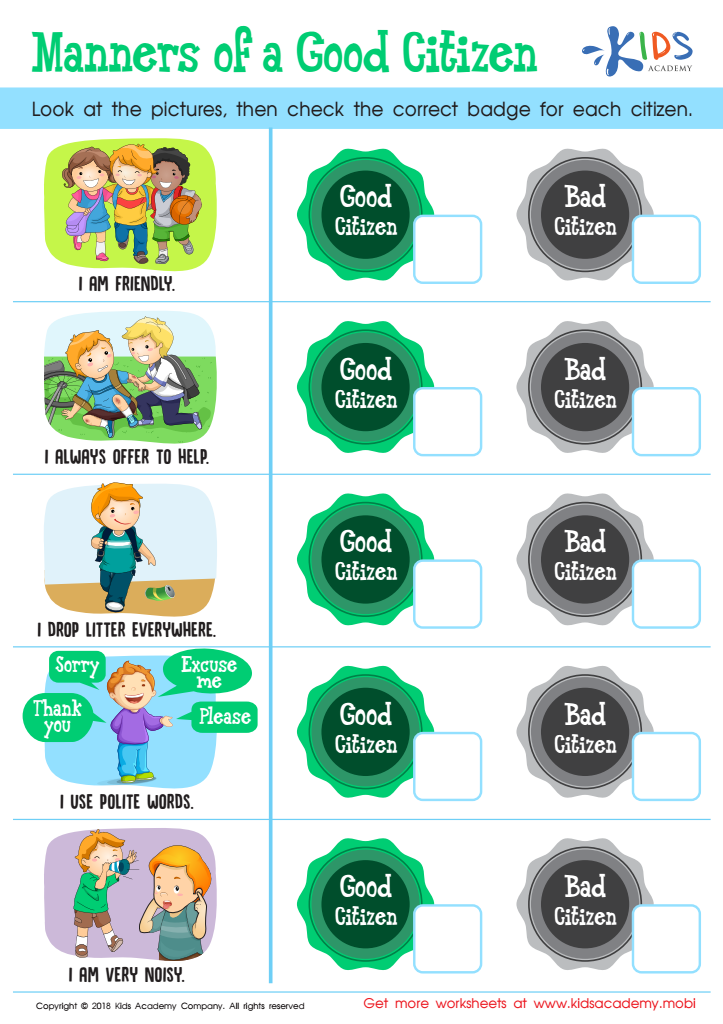

Manners of a Good Citizen Worksheet
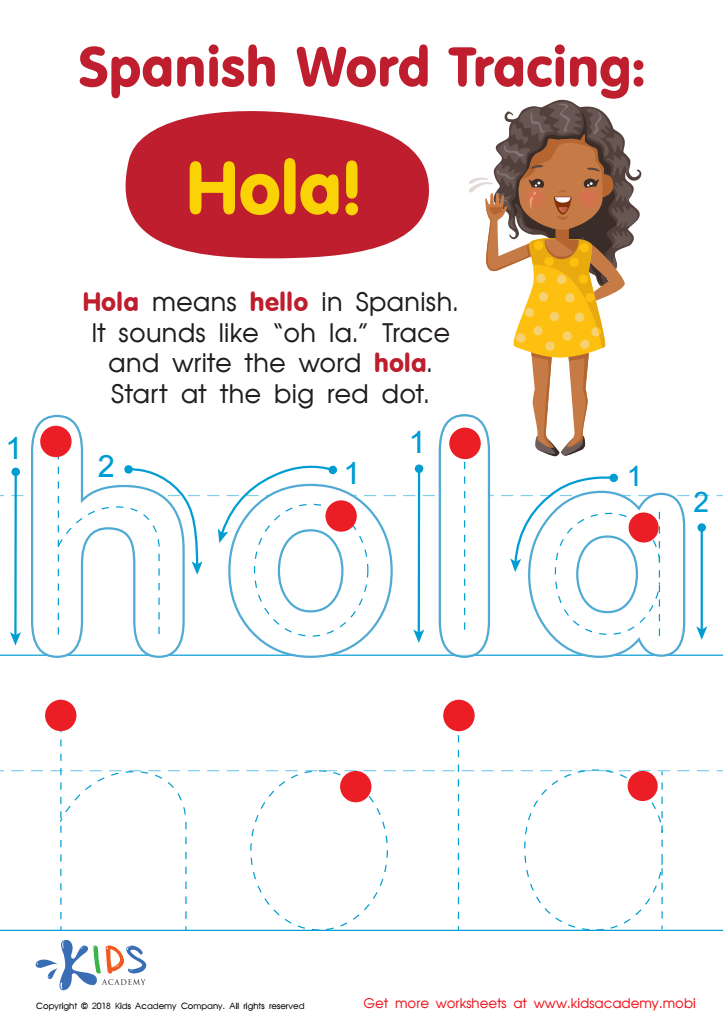

Spanish Word Tracing: Hola Worksheet
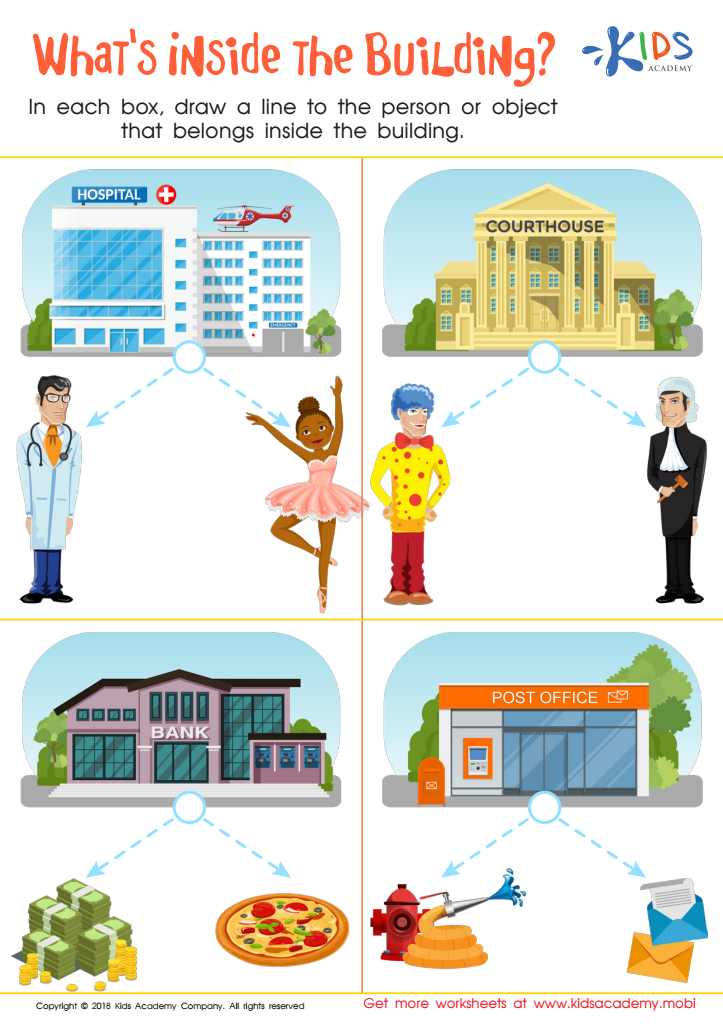

What's Inside the Building? Worksheet
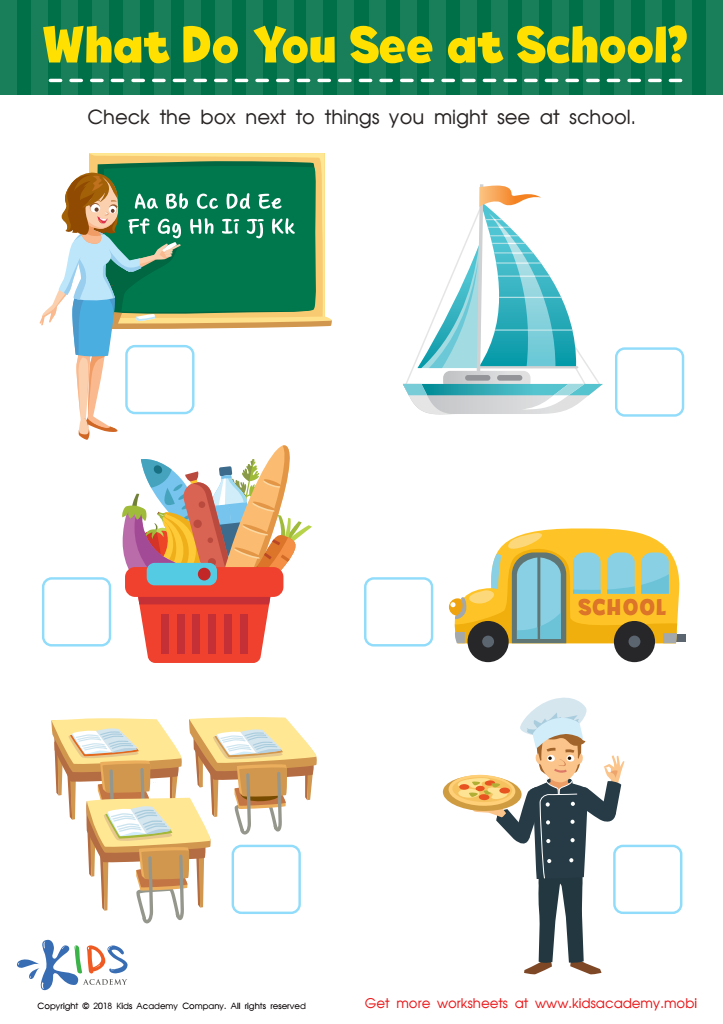

What Do you See at School? Worksheet
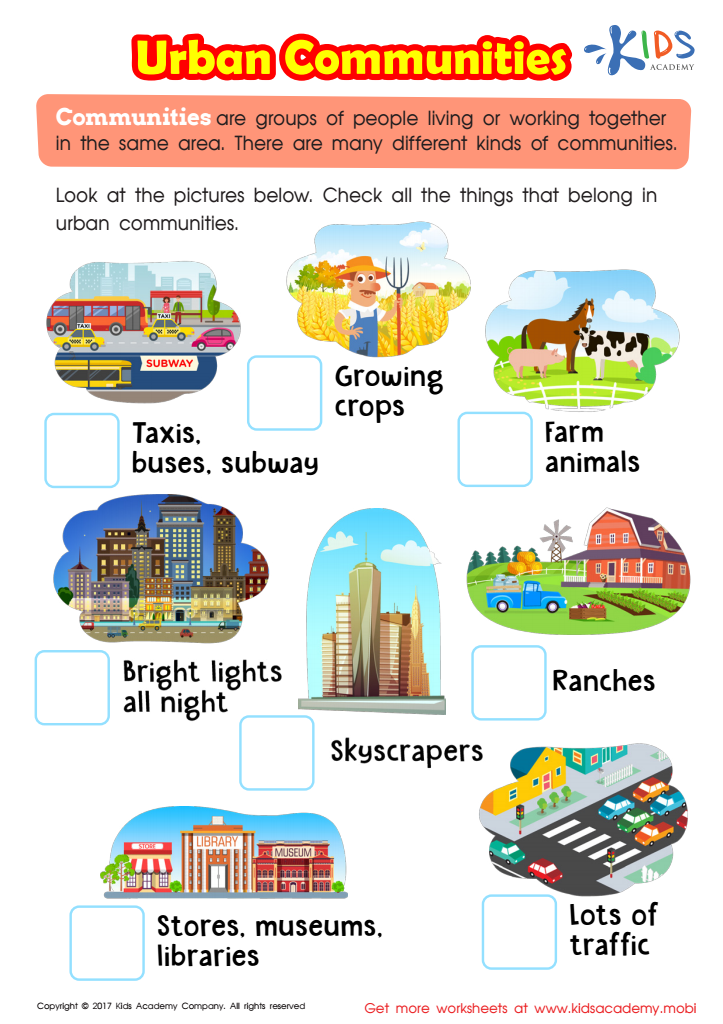

Urban Communities Printable
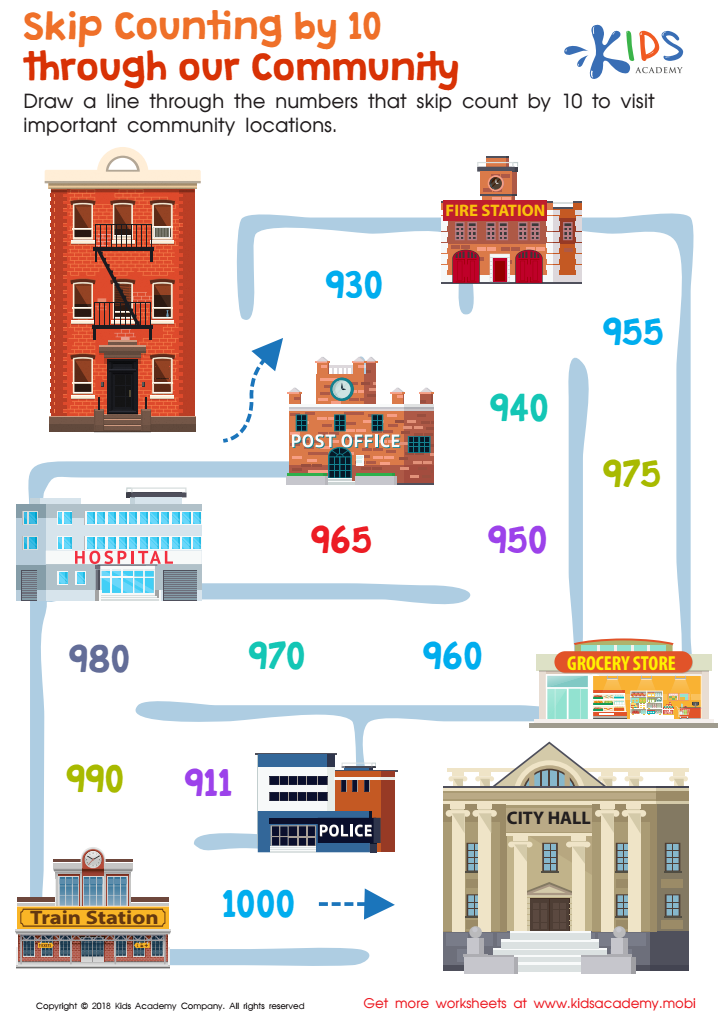

Skip Counting by 10 Through Our Community Worksheet
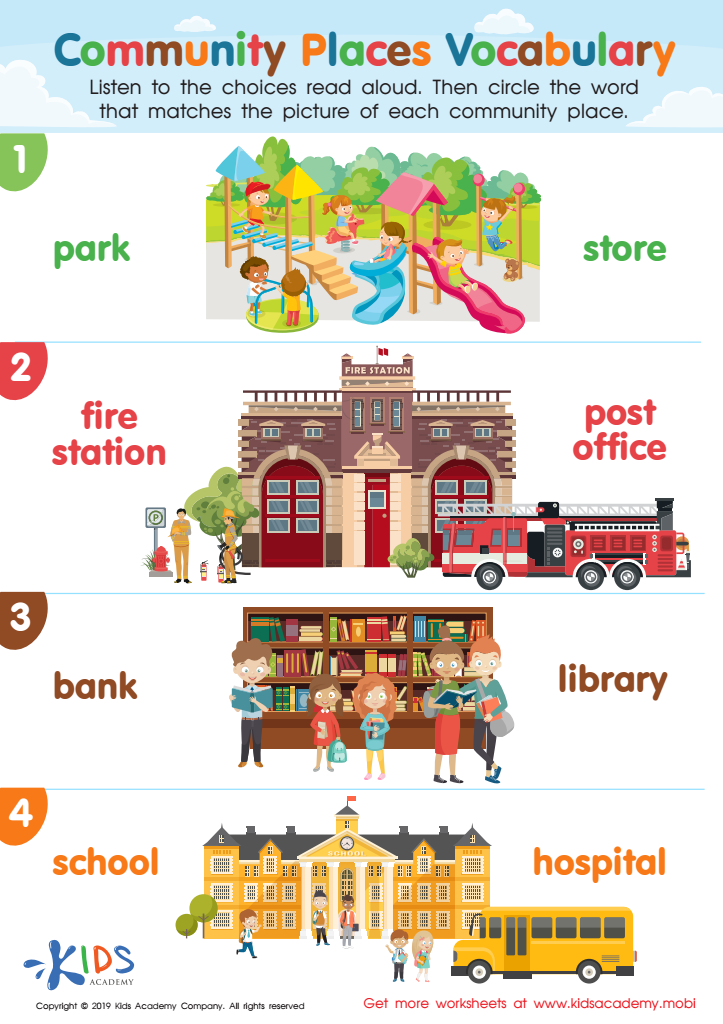

Community Places Vocabulary Worksheet
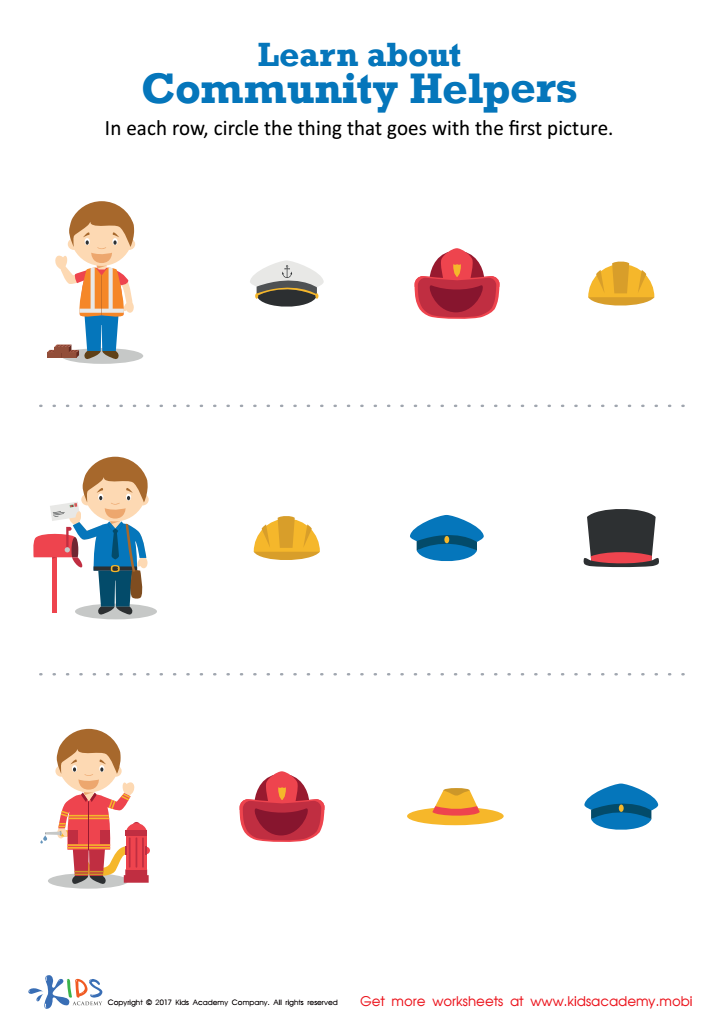

Learn about Community Helpers Printable
Vocabulary enhancement in children aged 4-7 is crucial for several reasons, making it a priority for parents and teachers alike. During this formative period, children are rapidly developing cognitive and linguistic skills that form the foundation for future learning. A strong vocabulary boosts reading comprehension, allowing children to understand and enjoy stories, which nurtures a lifelong love for reading.
Additionally, enhanced vocabulary contributes to better communication skills. As children learn and use new words, they become more adept at expressing their thoughts and feelings. This is vital for social interactions, helping them build friendships and navigate conflicts. In classrooms, a robust vocabulary empowers children to participate actively in discussions, fostering confidence and engagement.
Moreover, vocabulary development is linked to academic success. Children with a richer vocabulary tend to perform better in assessments and standardized tests. Teachers and parents must provide engaging, varied, and purposeful language experiences, such as storytelling, interactive play, and rich discussions, to promote vocabulary growth.
Involvement in vocabulary enhancement activities nurtures children’s curiosity and creativity, equipping them with essential skills for lifelong learning. By prioritizing vocabulary development, parents and teachers ultimately help create well-rounded, articulate learners prepared for future academic challenges.

 Assign to My Students
Assign to My Students


